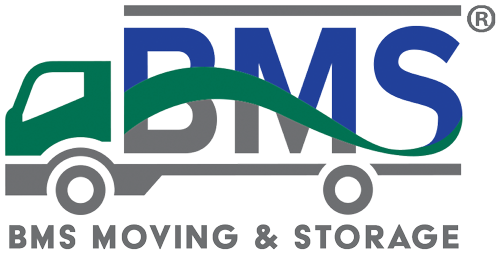Moving scams cost Americans millions of dollars annually, turning what should be exciting relocations into nightmares of lost belongings and drained bank accounts. Fraudulent movers prey on people during vulnerable transitions, but knowing their tactics helps you spot trouble before signing any contracts.
Common Moving Scams and How They Work
The hostage load scheme ranks among the cruelest moving scams. Your belongings get loaded onto the truck, then the price mysteriously doubles or triples. The mover refuses to unload until you pay the inflated amount in cash. You’re stuck choosing between your possessions and your savings.
Lowball estimates hook victims regularly. A company quotes $2,000 for your move, undercutting legitimate companies by thousands. Moving day arrives, and suddenly everything costs extra. That dresser? Overweight. Those boxes? Need special handling. Your final bill hits $8,000, and your stuff is already on the truck.
The deposit and disappear scam targets people planning future moves. You pay a substantial deposit to lock in your moving date. The company maintains regular contact until the week before your move. Then phones disconnect, websites vanish, and your deposit evaporates along with the fake company.
Subcontracting without disclosure creates chaos on moving day. You research and choose a reputable company, but strangers show up with a different truck. The company you hired sold your job to unknown subcontractors who might lack insurance, experience, or accountability for damages.
Red Flags During the Quote Process
Legitimate movers follow predictable patterns. They assess your belongings before providing quotes, either through in-home estimates or detailed virtual surveys. Scammers skip this step, throwing out prices based on minimal information.
Watch for these warning signs:
- Quotes given over the phone without seeing your items
- Demands for large deposits (legitimate companies typically request 10-20% maximum)
- Cash-only payment requirements
- Prices significantly below other estimates
- Reluctance to provide written estimates
- Generic company names like “Moving Company” or “Best Movers”
- Email addresses from Gmail or Yahoo instead of company domains
Legitimate companies like BMS Moving & Storage provide detailed written estimates after thorough assessments. They explain their pricing structure and answer questions patiently. Scammers pressure you to decide immediately, claiming special discounts expire today.
Verification Steps Before Hiring
The Department of Transportation licenses interstate movers. Every legitimate company has a DOT number displayed on trucks and paperwork. Search this number at the Federal Motor Carrier Safety Administration website to verify licensing and check complaint histories.
Research goes beyond basic licensing:
- Check Better Business Bureau ratings and complaints
- Read reviews across multiple platforms
- Verify physical addresses using Google Street View
- Call phone numbers to ensure they’re answered professionally
- Request proof of insurance and liability coverage
- Ask for references from recent moves
State regulations vary for local moves. California requires PUC numbers. Florida demands IM numbers. Research your state’s requirements and verify compliance. Scammers often operate without proper state credentials, hoping you won’t check.
Contract and Documentation Protection
Never sign blank or incomplete contracts. Every legitimate moving contract includes:
- Complete inventory of items being moved
- Pickup and delivery dates
- Total cost breakdown with all fees
- Insurance coverage and valuation details
- Company’s physical address and license numbers
- Terms for delays or damages
- Dispute resolution procedures
Photograph your contract pages immediately after signing. Email copies to yourself for backup. Document pre-existing damage to furniture with photos and notes. Create your own inventory list independent of the mover’s version.
Binding estimates guarantee your final price won’t exceed the quote (unless you add items). Non-binding estimates can increase but have legal limits. Not-to-exceed estimates cap your maximum cost while allowing decreases if the actual weight is lower. Understand which type you’re signing and get it in writing.
Moving Day Safeguards
Professional movers arrive in marked trucks with company logos and DOT numbers clearly displayed. Crews wear uniforms or company identification. They provide paperwork matching your original contract and review inventory lists before loading begins.
Danger signs on moving day include:
- Rental trucks instead of company vehicles
- Demands for cash before loading
- Crews without identification
- Different company names on paperwork
- Pressure to sign new contracts
- Refusal to provide weight tickets
- Missing or modified inventory sheets
Document everything during loading. Video the condition of items and how they’re packed. Note which crew members handle valuable items. Keep an independent count of boxes and furniture pieces. If something feels wrong, stop the process immediately.
Payment Protection Strategies
Never pay large deposits upfront. Legitimate companies request 10-20% deposits at most, with balances due upon delivery. Scammers demand 50% or more before moving day, then disappear or demand additional payments.
Use credit cards whenever possible. They offer dispute protection if services aren’t delivered as promised. Avoid cash, wire transfers, or postal money orders that offer no recourse for fraud. Keep all receipts and payment records organized.
Understand your rights regarding payment:
- Movers cannot hold belongings hostage for disputed charges
- You must pay for services actually rendered
- Weight tickets must be available for your review
- Additional fees require justification and documentation
- Credit card disputes can be filed for fraudulent charges
What to Do If You’ve Been Scammed
Act immediately if you suspect fraud. File complaints with:
- Federal Motor Carrier Safety Administration
- Your state’s attorney general office
- Better Business Bureau
- Local police for theft reports
- Your credit card company for disputes
- Consumer protection agencies
Document everything for authorities. Save emails, texts, contracts, photos, and payment records. Record names, phone numbers, and license plates. The more evidence you provide, the better chance authorities have of catching scammers and recovering property.
Contact legitimate moving companies about recovering stranded belongings. Some will help transport items abandoned by fraudulent movers, though additional costs apply. Insurance claims might cover losses, depending on your coverage.
Choosing Legitimate Movers
Established companies maintain consistent operations over years. BMS Moving & Storage has served communities for decades, building reputations through reliable service. Research company histories and avoid businesses that appeared recently or change names frequently.
Professional movers invest in their operations:
- Permanent facilities and warehouses
- Company-owned trucks and equipment
- Trained, uniformed employees
- Proper insurance and bonding
- Membership in moving associations
- Transparent pricing and policies
Ask specific questions about handling challenges. How do they protect furniture? What happens if delivery delays occur? How are damages resolved? Legitimate companies have clear procedures and explain them willingly.
Special Situations Requiring Extra Caution
International moves attract sophisticated scams. Verify customs broker credentials and ocean freight forwarder licenses. Understand import duties and documentation requirements. Never ship belongings without proper contracts and insurance.
Military families face targeted scams during PCS moves. Verify any company claiming military affiliation. Use personally procured move programs carefully. Check whether companies are approved military contractors through official channels.
Senior citizens experience disproportionate targeting. Scammers assume older adults have valuable possessions and savings. Family members should participate in quote processes and verify credentials. Never let movers pressure seniors into immediate decisions.
Building Your Moving Day Defense
Create multiple safeguards against fraud. Research thoroughly, verify credentials, document everything, and trust your instincts. When deals seem too good to be true, they usually are.
Quality moving companies earn their reputations through transparency and reliable service. They welcome questions, provide clear documentation, and stand behind their work. Choose movers who demonstrate these qualities consistently.
Your belongings represent more than furniture and boxes. They hold memories, comfort, and stability. Protect them by choosing legitimate movers like BMS Moving & Storage who respect both your possessions and your trust. Taking time to verify credentials and spot red flags prevents devastating losses and ensures your move proceeds as planned.




